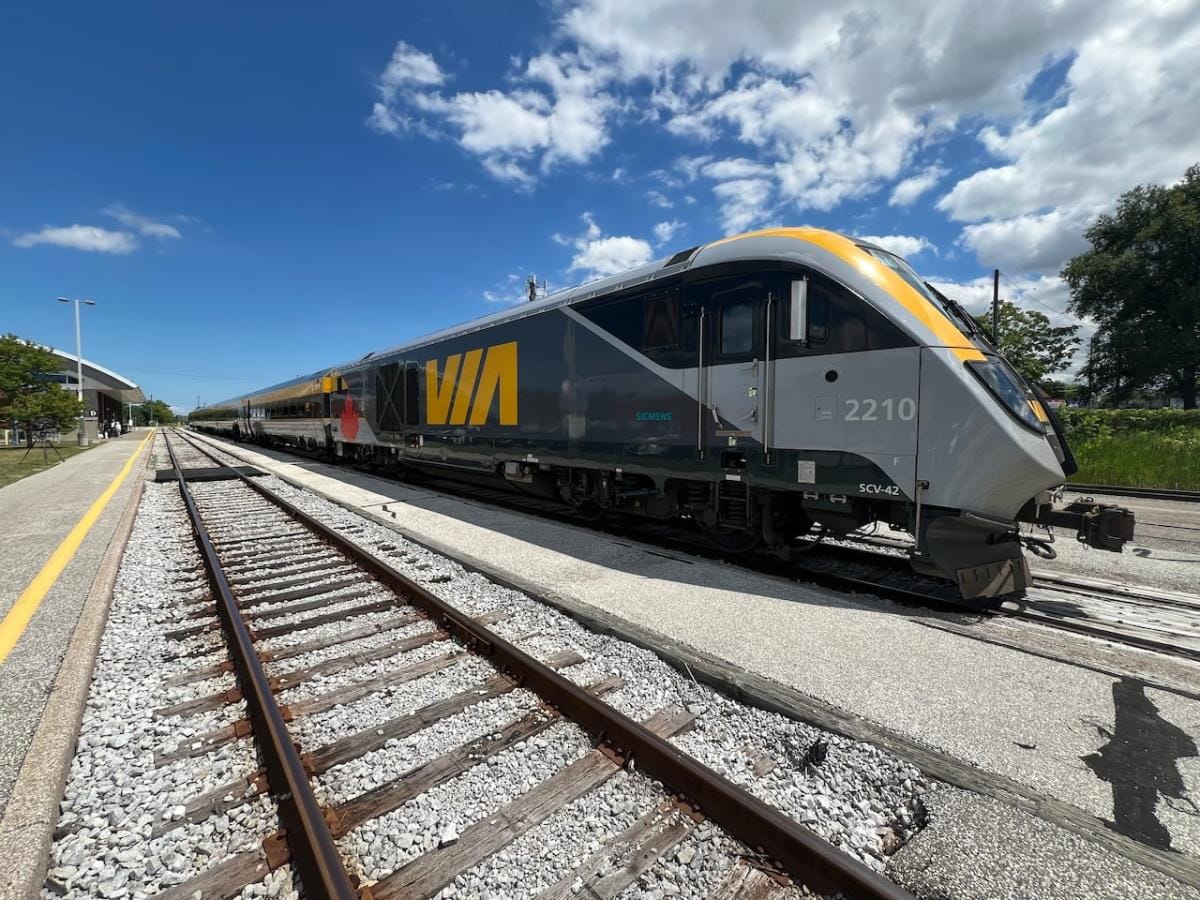Lack of food, water and toilets: Via Rail passengers fume after being stranded 10 hours in Quebec
Canada's transport minister to meet with Via Rail leadership this week


Via Rail passengers have voiced their frustration after their train from Montreal to Quebec City broke down, leaving them stranded for approximately 10 hours over the long weekend without adequate food, water, or access to a toilet for extended periods.
Rudy El Maghariki described his Saturday journey, which was expected to last three and a half hours, as turning into a 14-hour ordeal. "We were just tired. We were hungry. We were thirsty. We couldn't go out," he said, adding that the lack of fresh air made it almost impossible to breathe.
El Maghariki, like many others on train 622, had anticipated arriving in Quebec City around noon for a weekend visit. However, the train stopped about 45 minutes from the destination. He said that initially, staff attributed the delay to mechanical and technical issues, but after several hours with no updates, passengers grew increasingly upset and restless. "There was no communication … nobody was telling us anything," El Maghariki said.
Via Rail confirmed that passengers were stranded for 10 hours on Saturday due to two consecutive mechanical failures. The company explained that the situation was complicated by the train being on a single-track route in a remote area, with no available buses for alternative transportation during the long weekend. Electricity, air conditioning, and washrooms were intermittently shut down to facilitate repairs and coupling with another train.
Via Rail CEO Mario Péloquin apologized on Monday afternoon for the "inconvenience that was caused," acknowledging that the situation "is not acceptable from a customer service point of view and the values that we have at Via Rail." He explained that the delay was initially caused by damage to the train’s brake system, which engaged the air brakes and halted the train as a fail-safe measure. Although engineers managed to fix the issue, the sophisticated system detected less-than-ideal conditions and stopped the engine again. "It was a pure, relatively simple mechanical failure that snowballed into, you know, a 10-hour delay for the passengers," Péloquin said.
Péloquin assured that beverages and snacks were provided throughout the day, though he admitted there were "issues with the food" for about 90 minutes, with a meal and additional water delivered later in the evening. El Maghariki, however, noted that five hours into the delay, he had to pay $6.50 for a bagel for his sister. "It's not about the value, it's about the principle," he said. Eventually, free snacks and water were distributed, but supplies quickly depleted.
Carmel Tanaka, a Vancouver resident traveling to Quebec City to meet a cousin, recounted that a staff member showed passengers a jug with a limited amount of water, saying, "'I have this much water left. Are you really dehydrated? If so, I can give this to you.'" Tanaka, who holds a master’s degree in emergency and disaster management, criticized the situation as "textbook" poor emergency preparedness. "I said [to a staff member], 'Before the tide changes and people start to fight back, you need to feed us, you need to order pizza now. You need to order buses, Ubers, whatever you need,'" she said.
Frustration escalated, with a video on social media showing a Via Rail employee taking a passenger's phone as they filmed in the aisle. Péloquin stated that Via Rail is investigating the incident and will take appropriate measures following the review. "I really, sincerely apologize for what we've seen on the video, [which] looks like not the kind of thing we want to do," he said.
Around 8:30 p.m., more than nine hours after the train stopped, staff managed to buy pizza, though there wasn’t enough for everyone, El Maghariki said. Tanaka reported that a passenger with diabetes required medical attention and was taken off the train by ambulance. "They were trying to fix [the train] instead of finding solutions," she said, suggesting that alternatives like calling shuttles or buses could have been considered.
Federal Transport Minister Pablo Rodriguez stated on Sunday that he is determined to investigate the delay. A spokesperson for the minister later announced that Rodriguez had met with VIA Rail executives and deemed the passenger treatment unacceptable. "To make sure this doesn't happen again, VIA Rail has been asked to provide an independent report on what happened, improve training for their employees, and review their breakdown procedures," the statement said. The improvements will include better communication with passengers, enhanced services, and providing alternative options for reaching destinations promptly.
Eventually, the fire department was called to help transfer passengers to another train, with passengers arriving 10 hours late. Via Rail has apologized and is offering a full refund to affected passengers, along with a credit for a future trip equivalent to the price of their one-way ticket, though it cannot be used for an existing ticket. El Maghariki criticized the compensation as inadequate, noting that the credit could not be used for his return trip. Péloquin encouraged dissatisfied passengers to contact Via Rail’s call center.
Tanaka, who also had her return trip booked, wished Via Rail had made an exception to allow the credit for returning trips or at least covered a meal upon arrival. "Or, they should have paid for my poutine when I got to Quebec City," she added with a laugh.






